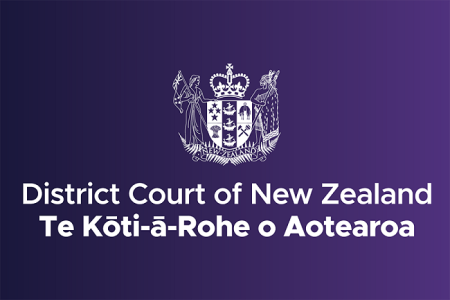Published 17 June 2024
By Te Whare

Delays to getting cases heard and progressed through the District Court take a toll on victims, defendants and families. The Chief District Court Judge has issued a new Timely Access to Justice Protocol [PDF, 478 KB] setting out a timely access to justice standard, which is that 90% of criminal cases are disposed of within category-based timeliness thresholds.
The thresholds are:
“Delays have a human cost on the communities our court serves”
“In setting the new standard, I am encouraging the wider justice sector to do their part to enable the 90% standard to be achieved.
It reflects the reality that in order to tackle court delays we need co-ordinated action from across the justice agencies, including Police, Crown Law and Corrections,” Chief District Court Judge Heemi Taumaunu said.

He said the leaders of the wider justice sector have agreed to support the District Court to reach the 90% standard by June 2027.
The new timeliness thresholds set out realistic timeframes within each category for most cases to progress from first appearance to completion. They reflect the length of time it takes for a criminal case to proceed through the stages and for fair trial rights to be upheld. Timeliness thresholds are intended to highlight where cases are affected by undue delays, not cases that are simply progressing through the full criminal case process.
Not all cases will be disposed of within the timeliness threshold. For example, the Whakaari–White Island case was category 1 but there was never an expectation it could be completed within six months. That is why the overall standard is 90%, not 100%.
Judge Taumaunu said a number of factors would affect whether the 90% standard could be achieved by June 2027, including resource levels in the courts and other justice agencies, changes in the volume of work coming to the courts and the impact of other big projects such as court digitisation. “The standard is aspirational and an important next step in our efforts to enhance timely justice.”
This change in the timeliness thresholds means the official court backlog figures for criminal cases will reduce. Active cases will continue to be considered in backlog if they exceed these timeframes. The new standard is about timeliness across all cases before the court and will provide greater visibility of when cases are at risks of going into backlog.
This website explains many of the things you might want to know if you are coming to the Youth Court, or just wondering how the Youth Court works.
 Visit website›
Visit website›
Ministry of Justice website with information on family issues including about going to court, forms and other times when you may need help.
 Visit website›
Visit website›
For information about courts and tribunals, including going to court, finding a court & collection of fines and reparation.
 Visit website›
Visit website›
On this site you will find information about our Supreme Court, Court of Appeal and High Court including recent decisions, daily lists and news.
 Visit website›
Visit website›